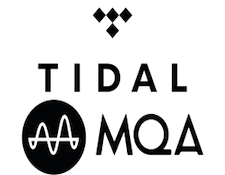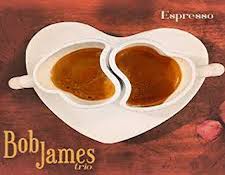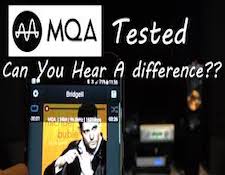here is another point of reference -
If there are any consistencies in the audiophile hobby it is that there are almost no unilateral agreements. Differing opinions exist on almost everything audio related. We have any number of amp and speaker technologies. We have multiple music formats and even a few not considered as meeting the basic acceptable standard of audiophile grade sonics. For about two decades, we had digital music solely in the form of a CD. Streaming changed all that, almost overnight.
MQA is poised to possibly change things in a profound way, depending, that is, on the acceptance of what is, admittedly, a controversial subject.

Most audiophiles have read at length about MQA. I feel sure there are those of us who have grown weary of the debate surrounding this new format. To a certain degree, that describes my position on the matter. There are too many variables that affect streaming, and the systems on which music is played, for me to make an absolute declaration about MQA’s sonic quality. I have seen many comparisons of MQA to CD quality and Hi Rez but those comparisons were based on streaming. I have yet to see much of anything on a comparison of any resolution – SACD, to MQA, to CD in the physical format. Until now, that is.
I recently received four discs from our editor, Steven Stone. Two of the discs were mastered in MQA and two were SACD. The original purpose was a sonic comparison of MQA to SACD in the physical realm. I decided to include CD quality as well – and a couple other comparisons thrown in for good measure. As to the two selections, one is the
Bob James Trio – “Espresso” and the second is
chlara – “evo sessions.” While the links are for the purchase of the MQA physical disc, both are also available on Tidal in CD quality and MQA as well. For the comparison, an MQA encoded DAC was used and amplitude of all the recordings were level matched.

I elected to jump straight to the presumed top of the food chain and immediately chose Bob James’ MQA disc. When I pushed play, I immediately heard an expansiveness in the overall presentation. It simply sounded big. I’ve been to several of James’ live performances and to a certain degree, this large-scale presentation reminded me of those concerts. Reminded me of, please note, NOT identical to. There was also a perceptible ferocity in how he sometimes struck the keys. It actually sounded quite surprising. I also noticed that on piano solos, and especially on more robust passages, there was a “reverberation” in the sound as his fingers struck the keys. I also felt the notes were better sustained, that is they hung in the air longer than what I would think CD quality would represent. This level of detail is what I would expect to hear when a piano was played live. As you might expect from such a high resolution recording, the clarity was magnificent. Frequency range was also spot on – that is, the bass line could be easily followed and the mids and highs sounded very accurate.
As to the SACD disc, I must admit, it was a very close second, but indeed a second to the MQA format. The overall width of the presentation was not quite as wide and the perceptible ferocity of James striking the piano keys at times was not as distinct. Make no mistake, the differences I noticed were very slight and were I not looking for any differences, with the exception of the sonic width, I might not have noticed much of a difference at all. From a frequency range, clarity, definition and accuracy standpoint, the SACD disc was almost on par with the MQA disc.

In regard to chlara – “evo sessions,” the MQA version was much the same as the Bob James selection. The music almost “exploded” from the speakers. There was a power and authority in the guitar playing that was easily noticeable. The sometimes transient percussion that is oftentimes difficult to hear, and makes music more interesting, was readily noticeable. There was excellent separation of the instruments and a lot of air around them as well. I also thought that at times, the presentation was a little bright but that was in all probability the recording itself and not the audio system. In all honesty, the attributes of the MQA recordings were very similar in both discs. This makes sense as both were released by the same production team.
Compared to the “chlara” SACD version, the results were much the same as what I experienced on the Bob James disc. I noticed the presentation was not quite as “large” and the impact, especially on guitar, was not as powerful as the MQA version. It was almost as if the strings, when played with authority, were not struck as hard. Also, the separation of instruments was not as profound as with MQA but really, not by all that much. In fact, the SACD versions of both sounded very, very good. I would be happy listening to them anytime I played music.

The above comparison was my original goal, but I wanted to compare things in a few different ways. Streaming of both in MQA through Tidal compared to the physical MQA CD’s was certainly surprising. I immediately felt the physical disc was better than the streamed version, again, in MQA. I know that streaming, depending on the system, can introduce profound amounts of jitter and consequently devastate a digital signal. This condition is greatly reduced when playing a physical CD. So perhaps jitter had something to do with the fact that physical MQA sounded slightly better than streamed MQA. It could also have been the streaming setup of my system compared to the CD player. Really, though, the streamed version in MQA had all the earmarks of the physical version, just not taken to quite the same level.
Finally, I compared all the various formats, physical and streamed, to CD quality. This was not a surprising conclusion. MQA and SACD sounded better, regardless of physical format or streamed, than Red Book CD. Not a huge difference but again, it would be noticeable. I should also mention that I thought all of them, regardless of the format, sounded very good. In summary, I thought both physical CD’s in MQA sounded better than their streamed counterparts. The SACD physical format was a very close second to the physical MQA and quite possibly equal to, and depending on the system, better than streamed MQA. Any of the MQA and SACD version were better than CD quality, or 44.1 / 16.

Does any of this change my mind about MQA? No, not really. I have always maintained I have heard MQA sound profoundly excellent but also sound not so different than CD quality. That has absolutely as much to do with the system as with the recording. I will admit, however, I was very impressed with what I heard with an MQA formatted physical CD. On the right system, a physical MQA disc could conceivably be the pinnacle of digital music. But this would be very system dependent. Availability of MQA discs likely negates building a substantial library with them. If, however, this is a format that could catch on, and availability increases, hey, maybe so. Given the ever-increasing popularity of Internet based music at a minimum of CD quality, I question if the MQA format will ever take a firm hold in the physical realm. If it does, I feel sure it will be one more of a growing list of contentiously debatable subjects.
